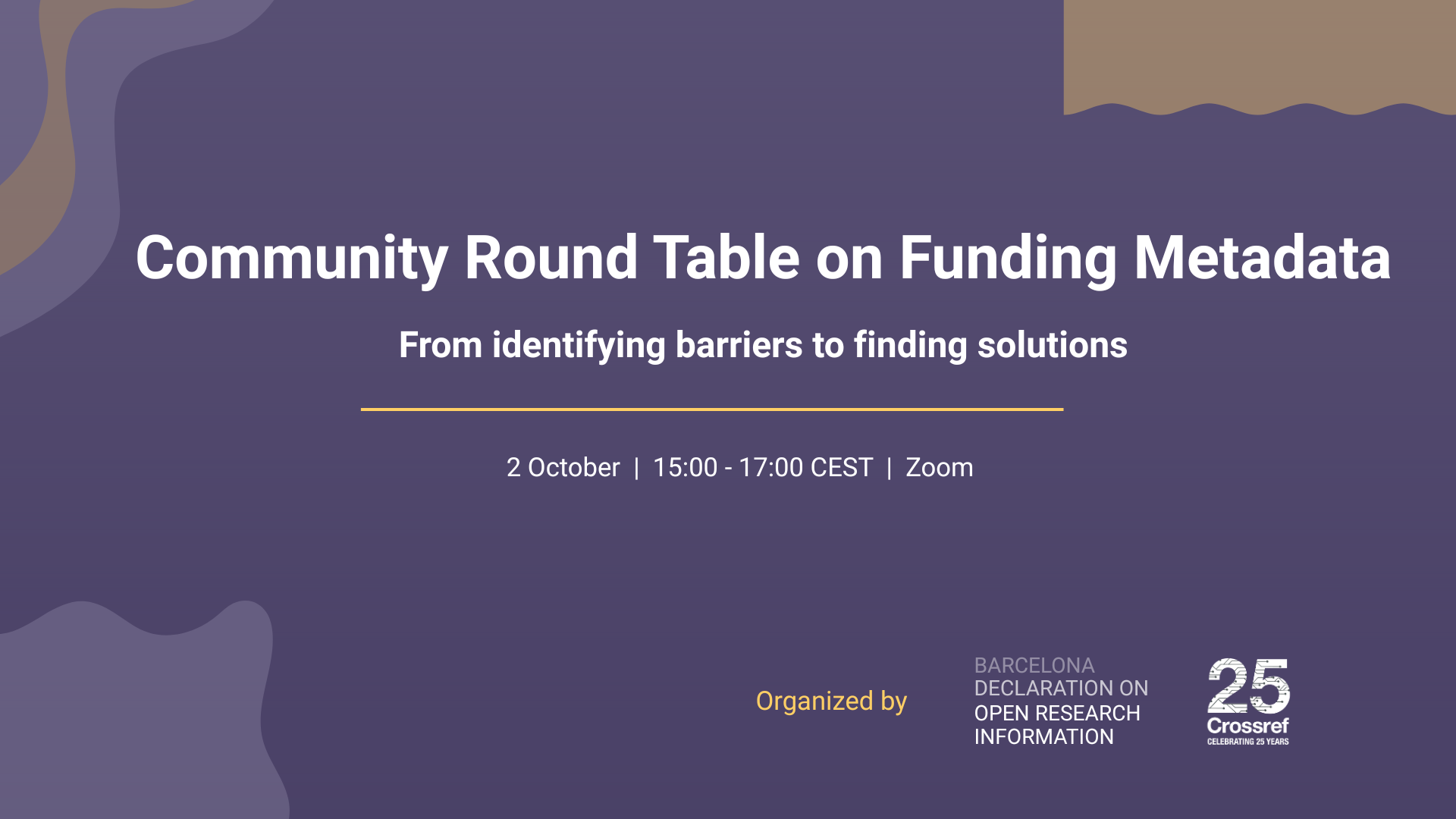October 23, 2025
Hans de Jonge (Dutch Resesarch Council NWO), co-coordinator Working group Funding Metadata
On October 2, 2025, funders, publishers, submission system providers and infrastructure organisations came together for a focused discussion on improving the collection and sharing of open funding metadata. Organised by the working group on funding metadata of the Barcelona Declaration on Open Research Information in collaboration with Crossref, the roundtable surfaced a clear desire to move from identifying known problems to practical solutions.'
Why this matters?
As Katharina Rieck from Austrian Science Fund (FWF) emphasised, open funding metadata benefits the entire research ecosystem: researchers gain enhanced discoverability of their work through clearer links between funded projects and outcomes. For funders, it is important because it helps them to track outcomes and make evidence-based decisions about their funding. Publishers benefit from greater insight into the research they publish, while society at large profits from greater transparency and accountability in how (public) research funds are spent.
Current state
Yet despite these recognised benefits, only about 25% of publications in Crossref currently contain funding information—and the variation among publishers is striking. Some register funding data for nearly all publications, while others deposit little to none. Hans de Jonge (Dutch Research Council NWO) and Bianca Kramer (Barcelona Declaration) reminded the audience of the outcomes of an earlier community roundtable, which showed that the technical challenges publishers face in collecting this data within their production workflows are an important factor explaining the relatively low funding metadata completeness in Crossref. They also shared initial findings from a study linking metadata completeness to the submission systems publishers use. Kora Korzec from Crossref highlighted the increasing number of funders that implement Crossref Grant IDs - now 45 - and the 250k connections already made between funding and research outputs.
From challenges to solutions
The 45 participants then broke into breakout groups to explore possibilities for improvement. Three dedicated groups discussed practical challenges publishers face when collecting funding information. Some publishers would like to see submission systems improved to better capture this data at submission, while others work with third-party providers to extract funding information from manuscript texts. Technology providers, like submission system vendors, stand ready to work with publishers to improve systems. Publishers also expressed a strong desire for more standardisation in the way authors report on funding and called on funders to work together on this. Institutions could also take a more active role, for instance by including funding metadata in their negotiations with publishers, a topic also addressed by a joint taskforce established in partnership between the Barcelona Declaration on Open Research Information and the OA2020 Initiative.
Other important topics discussed included:
How different submission systems support (or hinder) funding metadata workflows
Technical workflow issues with Crossref registration
How funders can contribute by registering grant IDs with open infrastructure
Next steps: a call to action
It was clear that improving the quality and coverage of funding metadata was on the agenda of many organisations and there was a strong interest in collaborating on practical next steps. We intend to capture the rich discussions by developing a joint action plan highlighting both the importance of open funding metadata and the concrete actions that different stakeholders—publishers, technology providers, funders and institutions—can take to enhance its availability and quality.
Presentations from the roundtable session are available on Zenodo. Organisations interested in getting involved and shaping the next phase of this work are invited to make contact via: contact@barcelona-declaration.org.
